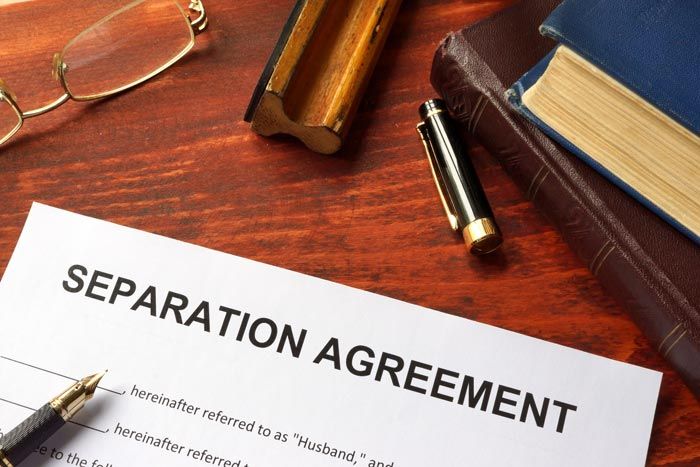PAYING UP AFTER A DUI: THE MONETARY COSTS OF DRIVING UNDER THE INFLUENCE
- By Admin, Thursday, November 2, 2017 9:58 AM
- •
- 17 Sep, 2018
- •

Before you decide to get behind the wheel of a vehicle while under the influence, you should really consider exactly what it could cost you - aside from the fact that you could cause a deadly accident. If you are not ready to spend thousands of dollars, you may want to think twice before driving under the influence.
Attorney's fees are just the tip of the iceberg when it comes to what you will be financially responsible for. There are a variety of additional fees, fines and expenses that will come along with your defense.
The following will provide you with an idea of the kind of expenses you can expect to pay when you are convicted of a DUI. Keep in mind that exact figures are not provided because monetary amounts will vary from person to person and state to state. However, here's a general overview of what to expect.
COURT COSTS AND FINES
As a first-time DUI offender, you can expect to pay a pretty penny in court costs. The initial fines can cost upward of a few hundred dollars. Additional penalties can easily cost a few thousand dollars. For habitual offenders, you could easily face penalties in the five-figure range.
DRIVING SCHOOL
Once you are found guilty of a DUI, you may have to attend driving school in order to begin the process of reinstating your driving privileges. Most schools will last for several months, depending on how many DUI offenses you have committed.
Driving school costs will vary, depending on which school you attend and the cost of tuition they deem appropriate. Some schools will only charge a few hundred dollars, while others can charge over $1,000 in tuition.
ATTORNEY'S FEES
No matter what, it is best to hire an attorney to defend you if you are charged with a DUI. The cost of your legal expenses will depend on the attorney you choose, so there is no way to know exactly how much it will cost.
The fees charged will depend on a variety of factors, such as if it is your first offense, if you need any expert witnesses or if your DUI resulted in the death or serious injury of another person. Additionally, the notoriety and legal expertise held by your attorney will also factor into your costs.
VEHICLE IMPOUNDMENT FEES
If you are not involved in an accident and your vehicle is still drivable at the time of your arrest, your car will be impounded by the police. In order to get your car back, you are going to have to pay the impoundment fees. This will include the fees for towing the vehicle to the impoundment lot as well as a daily storage rate for each day that it is in their possession.
The lot may also charge a release fee in order for you to retrieve your car. Your total costs will depend on how long your car remains impounded. For two days, you can expect to easily pay several hundred dollars. The rate will only go up each day your car remains impounded, so it is best to get it as soon as you can.
These are the primary fees you can expect to pay when you are dealing with a DUI. However, this does not begin to touch on all of the additional expenses you may have to pay, such as insurance increases, time missed from work, reinstating your driver's license and paying for transportation after you're no longer allowed to drive.
If you are dealing with a DUI charge, contact James M. Whorley for help with your case.

You do not necessarily have to be on your deathbed before thinking about a will. You should get this document taken care of as soon as possible just in case. There are numerous benefits to having a comprehensive will , and you do not want to leave this Earth without having all your affairs in order.

Child custody laws and statutes are put in place by individual states. Understanding the nuances of child custody in each state is vital when seeking it. Texas is a perfect example of a state where child custody laws should be thoroughly investigated by those seeking custody.
- Terminology - In Texas, custody is interchangeable with the term conservatorship. While the term conservatorship is used in many other states, it is generally associated with anyone other than direct descendants. However, in Texas conservatorship includes children as well.
- Acronyms - There are several terms in Texas child custody cases that are merely referred to by their acronyms. While these acronyms are not difficult to differentiate, having a working knowledge of them can eliminate common confusion. For example, JMC stands for Joint Managing Conservators.
- Appointment - In Texas, in order for a custody order to legal and bona fide, it has to be processed through the courts. Though temporary guardianship can be approved through power of attorney, without an official court order, both parents have identical rights to children.
Child custody can often be one of the most contentious battles in a divorce settlement. For more information on child custody laws in Texas, call James M. Whorley at 254-742-0420.

It is not uncommon for circumstances to change after a divorce. When this happens, the involved parties may want to make changes to custody and support decrees. To move forward, the party seeking those modifications must show that the changes to the circumstances are significant and will continue. The changes that might prompt modification include:
- Relocation of one party to another state
- Significant income changes
- Concerns relating to the care and safety of minor children




This type of separation is more than just an informal trial period when one of you moves into another home for a few months. Instead, it requires a legal agreement that outlines yours and your spouse's fiscal and child-rearing responsibilities during your separation.
Legal separation isn't as well understood as divorce is. Below, we'll introduce you to what legal separation is and explain whether it could work for you.









